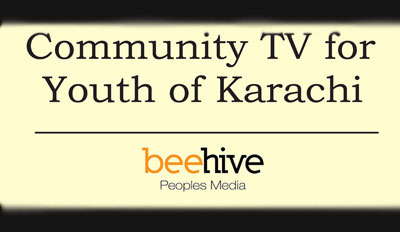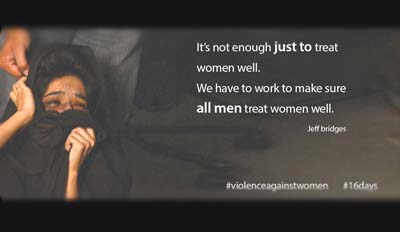Relevance of MoJo
By Khazima Munaf
Reporting for journalists has only turned difficult with time. But since all is not well in many areas like the Middle East, in Pakistan too the situation is far more alarming and threatening for journalists than it has been realized.
Today, the country is caught among many conflicts including terrorism, sectarianism, separatist movements violence between underworld mafias. Journalists report these stories from the conflict zones without having any training or even understanding of the danger.
Despite the government’s explicit acceptance that the media, as well as the rest of Pakistan, is confronting a highly volatile situation, incidents of targeted killings, abductions, sectarian violence, bomb blasts and suicide bombings continue. Journalists often become the victims while covering some of these events.
Previously mobile journalism was used rarely and even that by amateur reporters or civilians post smart phone boom. With new programs, constantly being introduced for better and quick quality churning of mobile developed videos, journalism has taken a turn as big as it had with printing press and with radio and TV.
The development of mobile phones with advanced multimedia capabilities and network connectivity has brought novel ways for journalists to live out their hectic profession. News stories, photos and videos can be produced or even published straight from the field, making the news production process faster and more efficient.
Mobile phones also provide a potential means to retrieve up to date or contextual information through the mobile internet or context aware services. With the relevance of MoJo (Mobile Journalism) in current times, universities with media programs have tackled it earnestly on academic scale.
FutureToday had the privilege to interview two Masters students who did their university project to highlight importance of MoJo in Pakistan, specially FATA.
FutureToday: Tell us a little bit about your project that led to the making of the documentary.
Fernanda Abras: We had an assignment at university, and I had a contact with a moJo trainer in Pakistan because I had earlier worked a dissertation on this subject. He had told me that moJo techniques are very useful and active in Pakistan because of terrorism and that it is helping a lot. He is training many journalists in major (media) companies. I found it very interesting because this discipline is treated for temporary issues in journalism at universities and so we thought it’ll be a good subject with studying new technology and new forms of journalism.
Carol Delmazo: And while we were talking about the project and the interview we started to do more research about Pakistan, about journalism there, about its institutions, about every issue around it. We read so much about Pakistan, from academic articles, news reports and we also talked to a guy from reporters without borders, which was a very important contact for us.
Fernanda Abras: We found Imran (Shirvanee) through Jibran. We wanted to contact journalists from companies (corporate media) but also independent journalists because we think moJo kits give them and bloggers more visibility and aid their work.
Carol Delmazo: Yeah. In general, we knew all that because we understood that mobile journalism has a very important role in reporting from FATA; which is why much of our documentary is related to reporting in FATA.
FutureToday: So, you chose Pakistan because of your prior contacts and the research you had done already?
Fernanda Abras: It was a coincidence. We were doing this project already and then we saw the documentary which the teacher put for us in the classroom and then we saw about FATA. We were researching simultaneously and we saw how important moJo is for journalists in FATA and that enforced our convictions that the subject was good for us.
Carol Delmazo: We were also concerned about learning other consequences of it like one person doing the job of three people in media.
Fernanda Abras: We knew that media companies were doing that and not because of safety but due to costs. So, we focused on not just the good but mainly for independent journalists but also study the impact of it on journalists in big companies who can afford but have opted for moJo because of the cost.
Carol Delmazo: It was interesting, because Jibran mentioned that there are interests and that mobile journalism helps a lot but it’s not the only way to do journalism and that it cannot replace everything that regular journalism can do.
FutureToday: Good point. What according to you are the pros and cons or limitations to mobile journalism?
Fernanda Abras: Of course, the limitations are that you can’t get the same quality material from your phone and it’s the work of just one person. So, you can’t have the same quality of work like that of big productions and special reporting. And also, for workers, because with this type of journalism they tend to lose jobs as just one person can work and spare the cameraman, etc. And the pros are that you can do everything quickly while on the field. Like you can work from there using the Cloud or Snapchat. You need a connection of course but you don’t need to wait to send in your material. And even if someone takes away (snatch) your phone you would’ve already send it or saved it.
Carol Delmazo: And if we focus on access, you face difficulty with heavy equipment but with moJo you can be anywhere and have access to difficult locations.
Fernanda Abras: I can make comparison between Pakistan and Brazil because we have the favelas here (slums in urban Brazil). It is a very difficult place because they are like a parallel power with the drug dealers and the (war) lords there in mountains. It’s a very poor place and for us journalists it is very difficult like I have never been inside one.
Carol Delmazo: I have been in one twice but only when we flock our (community) leaders. Only in these situations. The communities, we have seen to really trust their leaders. Imagine if we would go there with our mobile phones it’d be much easier. We have a lot of terrorism here too and the journalists also admit that it’s been a lot easier in such areas with mobile phones and that it could be safer.
Fernanda Abras: And that’s because with a phone you don’t intimidate people as much, even if you’re not in a dangerous setting. In a peaceful situation, people interact freely and give interviews. And this Indian guy I know who now works for CNN in London is very good with it and is referred to as the Prince of moJo. His name is Yosuf Kamal. He did a series of reports with victims of harassment, mainly women. And they could say things which they wouldn’t ordinarily on Snapchat using different filters to remain anonymous. It was a very different approach to talk about a very important subject.
Carol Delmazo: As we mentioned in the documentary that their most important role is in independent journalism as this gives power and opportunity for people to work. Since we are in a new age of digital world and revolution with more opportunities who wish to work by themselves. It has played a very important role in giving power to independent journalism who can show different views and not just what the big/corporate media is showing.
Fernanda Abras: As we know that big media companies have certain interests to meet out their profits.
Carol Delmazo: Like the economic issues. We understand that there are a lot of areas where journalists from big media companies are not allowed to do their work. Sometimes the owner shuts down the report saying no it’s not like this and it’s not going ahead. So, an independent journalist can cover this with their mobile phones and bring forth different point of views to sustain democracies.
FutureToday: Has moJo put into question authenticity and reliability of journalism these day?
Fernanda Abras: I think with this new technology and all these new tools you need to be more careful because one can do anything and whatever they want but I think the same principles of journalism can be used. Citizen journalism and with all the bombing of news from everywhere, I think journalists have more work today than ever.
Carol Delmazo: I think one need to be transparent when they talk of credibility. What you’re doing, who you’re talking to because we know of big media houses with interests. For me it’s about journalist’s transparency and showing why they’re doing certain stories and how they’re doing it.
FutureToday: Do you guys plan on visiting Pakistan anytime soon?
Fernanda Abras and Carol Delmazo: We’d love it!
Carol Delmazo: Yes, I’d like that and specially because I read the book of Malala. And I loved it.
Abras is a 38-year-old Brazilian journalist and is currently working as a mobile journalist in Lisbon. She has been active on mainstream TV media since 2006. Delmazo has been active in media for the last 6 years as producer, reporter, and presenter. She has reported for Olympics and FIFA world cup and is an enthusiastic sports journalist. Both are studying for their Master’s degree in journalism.








